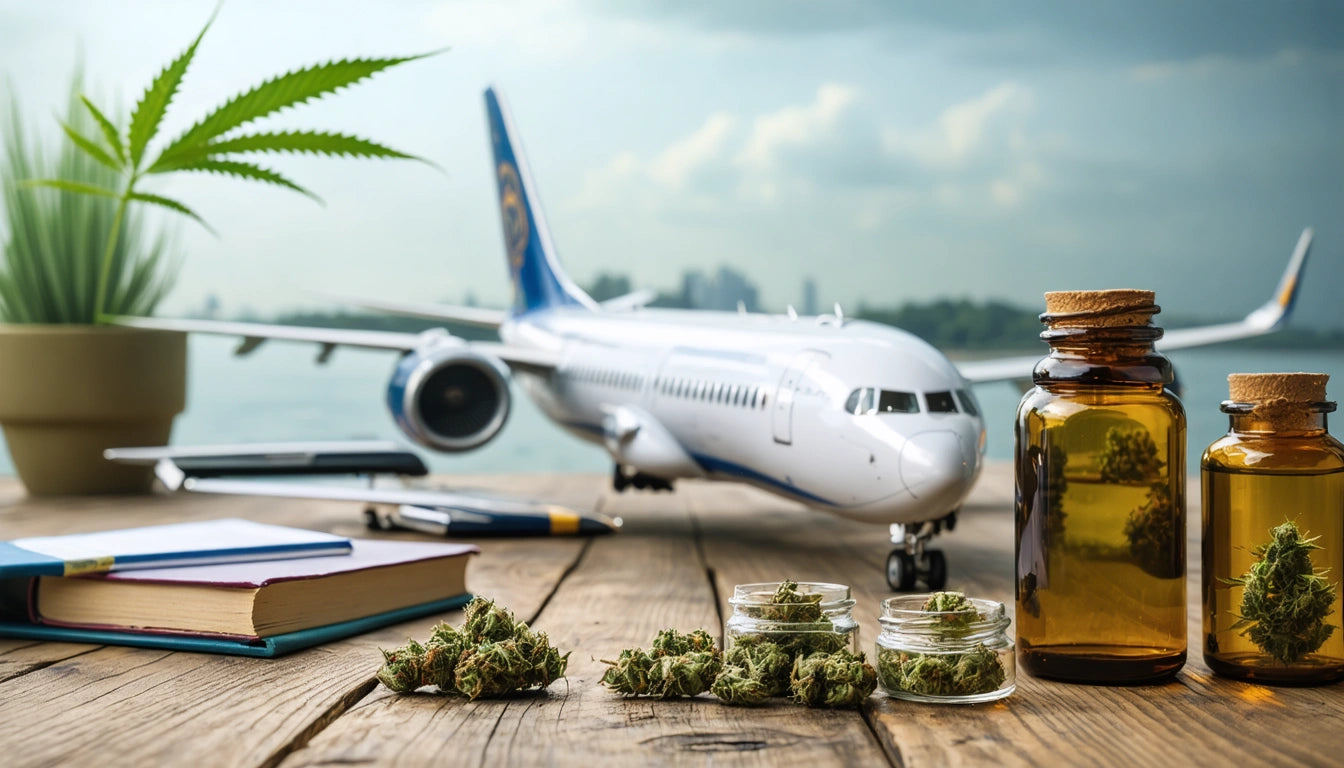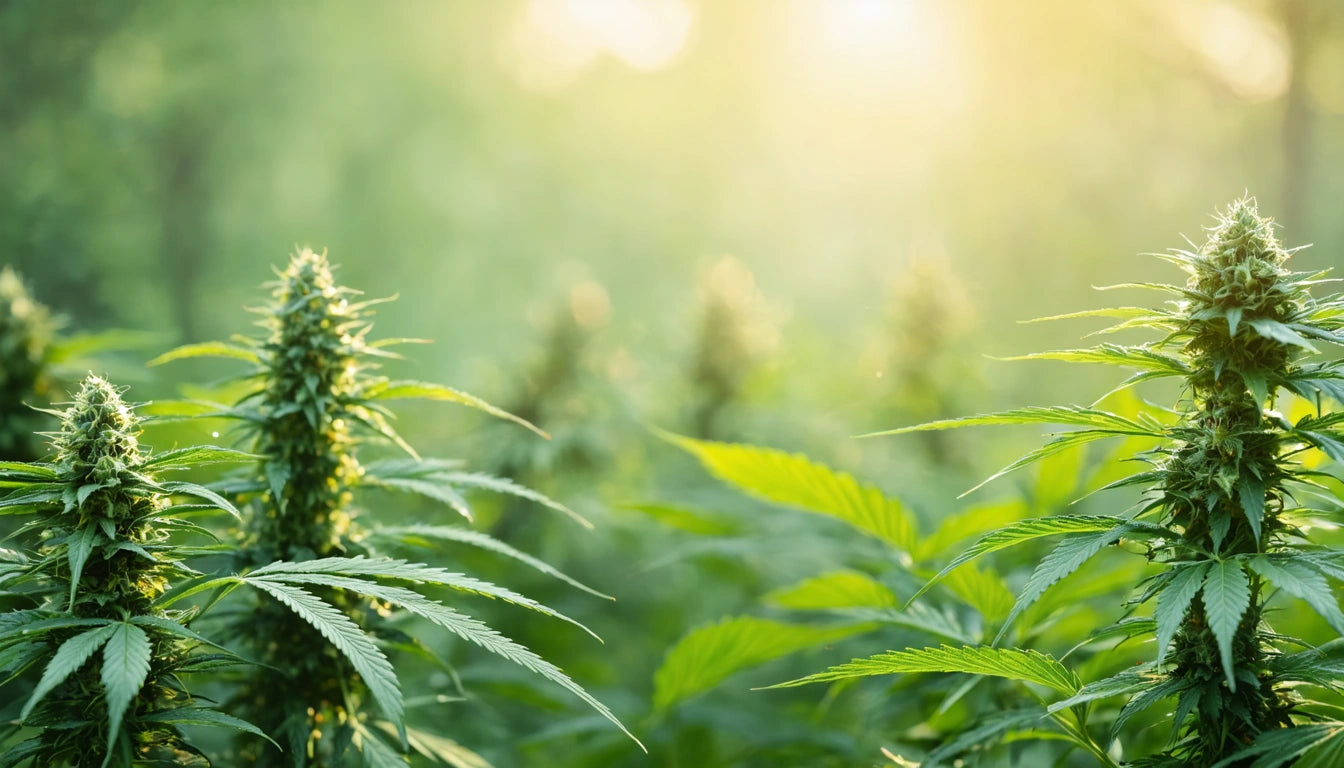Table of Contents
- Federal vs. State Laws: Understanding the Legal Landscape
- Domestic Travel Considerations: State Borders and Jurisdictions
- Flying With Cannabis: TSA Policies and Airport Regulations
- International Travel Risks: Global Cannabis Regulations
- Safe Transportation Practices: Compliance and Discretion
- Legal Alternatives for Cannabis Travelers
The question of whether you can travel with cannabis legally has become increasingly complex as more states legalize medical and recreational use while federal prohibition remains in place. This guide explores the legal considerations, risks, and best practices for cannabis consumers who travel.
Federal vs. State Laws: Understanding the Legal Landscape
Cannabis remains classified as a Schedule I controlled substance under federal law, making possession illegal regardless of state legalization. This creates a significant conflict for travelers, as crossing state lines with cannabis technically constitutes interstate drug trafficking under federal statutes.
Even in states where cannabis is legal, the rules vary significantly. What's permitted in Colorado might be prohibited in Illinois, despite both having recreational legalization. Medical cannabis regulations add another layer of complexity, as some states recognize out-of-state medical cards while others do not.
Domestic Travel Considerations: State Borders and Jurisdictions
When traveling between states, remember that each border crossing represents a new legal jurisdiction. Even traveling between two legal states (like Washington and Oregon) requires passing through federal jurisdiction, creating legal risk.
For road travel, consider these important factors:
- Law enforcement in prohibition states may profile vehicles coming from legal states
- Border checkpoints between states like California and Arizona frequently conduct searches
- Possession amounts legal in your origin state may exceed limits in your destination
- Some states have reciprocity agreements for medical patients, but recreational users rarely receive such protections
For more specific information about interstate travel, this detailed guide on domestic cannabis transportation provides state-by-state guidance.
Flying With Cannabis: TSA Policies and Airport Regulations
The Transportation Security Administration (TSA) operates under federal jurisdiction, making airports particularly risky for cannabis transportation. The TSA's official policy states they don't specifically search for drugs, but they must report any discovered to local law enforcement.
Airport policies regarding cannabis vary widely:
- Some airports in legal states (like LAX) permit possession of legal amounts within the terminal
- Other airports in legal states have amnesty boxes to dispose of cannabis before security
- Once aboard an aircraft, you're in federal jurisdiction regardless of state laws
- International flights involve customs inspections with severe penalties for drug possession
For medical patients concerned about how long cannabis remains in your system, it's worth noting that residual THC won't trigger security concerns, but physical possession will.
International Travel Risks: Global Cannabis Regulations
International travel with cannabis presents the highest legal risk. Many countries impose severe penalties for cannabis possession, including lengthy prison sentences. Even traveling to cannabis-friendly destinations like Canada or the Netherlands does not make it legal to transport cannabis across international borders.
Notable international considerations include:
- Never transport cannabis on international flights or border crossings
- CBD products may be legal in some countries but still prohibited in others
- Medical documentation from your home country typically isn't recognized internationally
- Some countries test for THC at borders and may deny entry based on positive results
The safest approach is to research destination country laws and purchase locally if legal, rather than attempting to transport products internationally.
Safe Transportation Practices: Compliance and Discretion
If you must transport cannabis within a legal state, proper storage is essential for both legal compliance and product preservation. Proper cannabis storage techniques help maintain freshness while also addressing safety concerns.
For parents and responsible adults, using proper storage containers with secure child-resistant lids isn't just about compliance, it's about preventing accidental access by minors during travel. These specialized containers keep products fresh while providing an additional layer of security.
When transporting within a legal state:
- Keep products in their original, sealed packaging with purchase receipts
- Store in the trunk or locked glove compartment, never in the passenger area
- Respect public consumption laws, which apply even in parked vehicles
- Never cross state lines, even briefly, as this triggers federal jurisdiction
Legal Alternatives for Cannabis Travelers
Rather than risking legal complications, consider these alternatives when traveling:
- Research dispensaries at your destination and purchase locally
- Explore legal hemp-derived CBD products with minimal THC content
- For medical users, obtain temporary medical cards in reciprocal states when possible
- Consider tolerance breaks during travel to prohibition states
- Look into microdosing techniques that may require less product during travel
Understanding the legal landscape helps travelers make informed decisions that balance their cannabis needs with legal compliance. As regulations continue to evolve, staying informed about both federal and state laws remains essential for cannabis consumers who travel.











Leave a comment
All comments are moderated before being published.
This site is protected by hCaptcha and the hCaptcha Privacy Policy and Terms of Service apply.